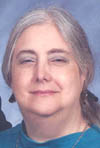ozij wrote:Reminder: CompSAS may simply improve/resolve on its own, given time. I believe that your persistence in therapy has made your breathing a lot more stable than it was in those studies.
Any idea of how much time, SAG? Or, put differently: how much time would you give it? What (other than success) would make you decide to stop the acclimatization trial?
These guys looked at 2 to 3 months:
The Significance and Outcome of Continuous Positive Airway Pressure-Related Central Sleep Apnea During Split-Night Sleep Studies
Nearly all patients with CPAP-induced CSA at baseline had complete resolution of the central events on follow-up when studied on the prescribed level of CPAP used to eliminate OSA. The patients were studied on the same effective pressure for the obstructive apnea that was determined on the first night of sleep study. Our findings suggest that CPAP-related CSA may be explained by ventilatory control instability resulting from sleep fragmentation as demonstrated by decreased SE, increased sleep stage 1, WASO, and arousals in the study group during the baseline study. These central respiratory events were consistently eliminated or significantly reduced on follow-up polysomnography, and this was associated with a significant improvement in total sleep time, as well as reduced light sleep and total arousals. This could be attributed to a progressive improvement in the hypercapnic ventilatory response, as OSA patients treated with CPAP, have improved sleep quality, fewer sleep state transitions, and eventually more restorative sleep.
CPAP-related CSA appears to represent a benign and transient phenomenon and is likely related to sleep fragmentation and sleep stage shifts that occur with initial CPAP titration. Bilevel positive airway pressure (BPAP) is often used in the treatment of Cheyne-Stokes respirations in patients with CHF and is frequently considered as an alternative mean to treat CSA events occurring during CPAP titration. However, reports have suggested that BPAP may actually worsen CSA with or without periodic breathing mediated by an overshoot in ventilation causing decreased Pco2 below the apneic threshold. Treating CPAP-induced central apnea with BPAP could also carry the potential of worsening these self-limited events. Finally, the persistence of CSA despite adequate CPAP therapy may warrant further investigation for occult cardiovascular disease. Larger prospective studies are needed for assessing the incidence and prevalence of CHF in patients with sleep-disordered breathing, in particular CSA.
and put up a graph that I think dramatically emphasizes this point, where CSA events drop precipitously:

-sws wrote:if elevated cortisol happens to be Bev's outstanding sleep issue, is that biochem problem likely to come in under radar during a typical NPSG? And if that really is at the heart of Bev's sleep-maintenance and central-nervous system variability, how might Bev best go about having that kind of health problem diagnosed and treated?
She needs another sleep study, because although the original studies are fascinating, at this point they are quite dated and undoubtedly bear no resemblance to where she's at now. For instance, your comments imply that she has insomnia, but despite sub-optimal sleep efficiencies in the titration PSGs (82.6% and 83.4%), there was no sustained control of respiratory events and consequently can not be used to determine baseline. Although she currently complains of frequent awakenings, is her overall sleep efficiency at an acceptable level? Is there another medical issue underfoot (like N.)? Is she another victim of poor sleep efficiency associated with being female? Did that laundry list of medications/supplements contribute to poor sleep architecture?
OutaSync wrote:Are you thinking that the aggressive IPAP is causing some of my arousals and putting me in the downward spiral?
You've got one night there ("the good night") on essentially straight 13 cmH2O, and another ("the bad night") on basically BiLevel 18/13 cmH2O. I believe that:
1. Ambien helps your overall sleep quality, decreasing your arousal threshold (does it ever!) and wake time;
2. It is the arousals and Wake/N1 transitions that cause the aggressive IPAP attack, not the other way around;
3. This upsets the concept of acclimatization;
4. Arbitrary dial wingin' is bad (I know you don't do that, Bev, but I haven't said that lately, and this is as good a segue as any); and
5. Way back at the birth of ASV SAG said don't go crazy with this technology because the number of true qualifiers would be small (ASAA has more moderators than SAG has ASV patients).
SAG















